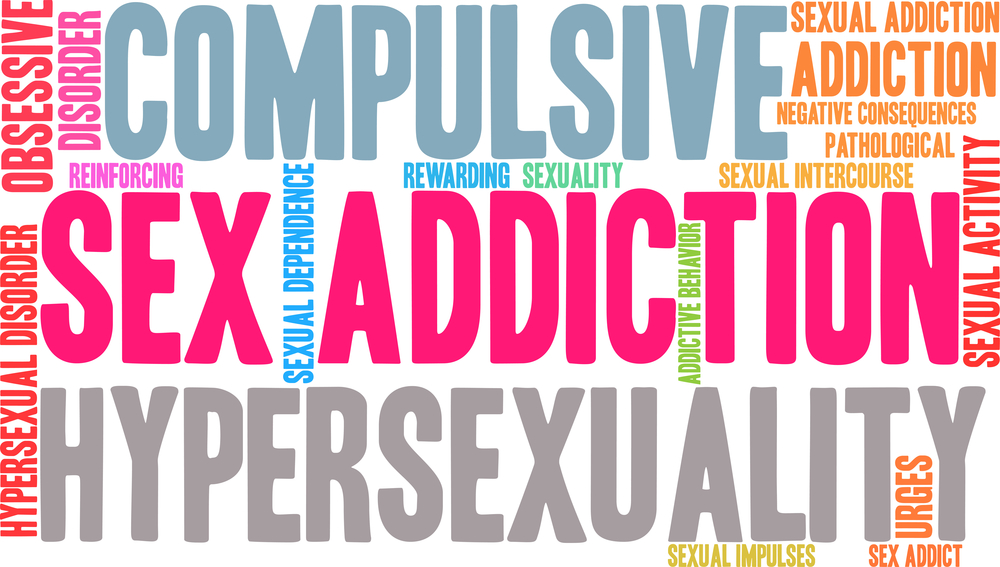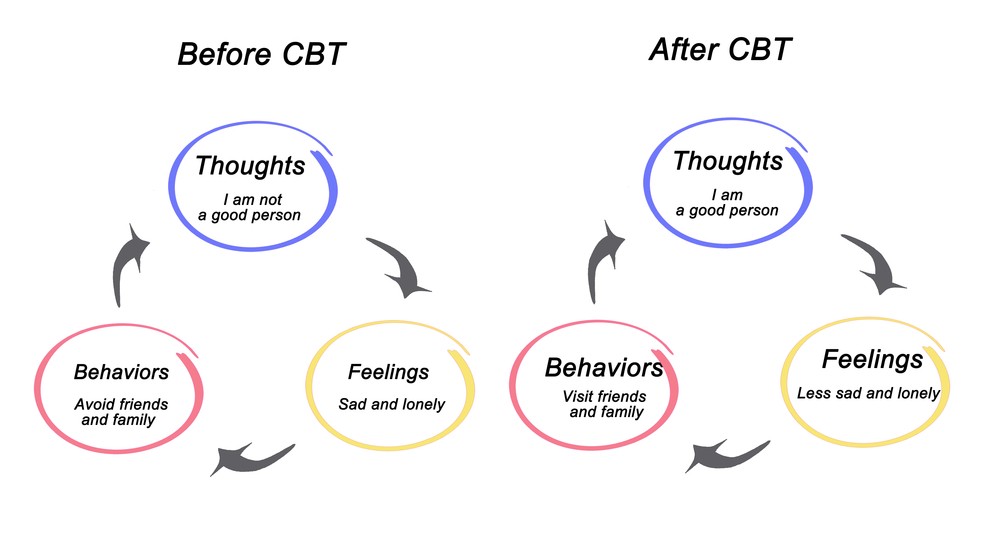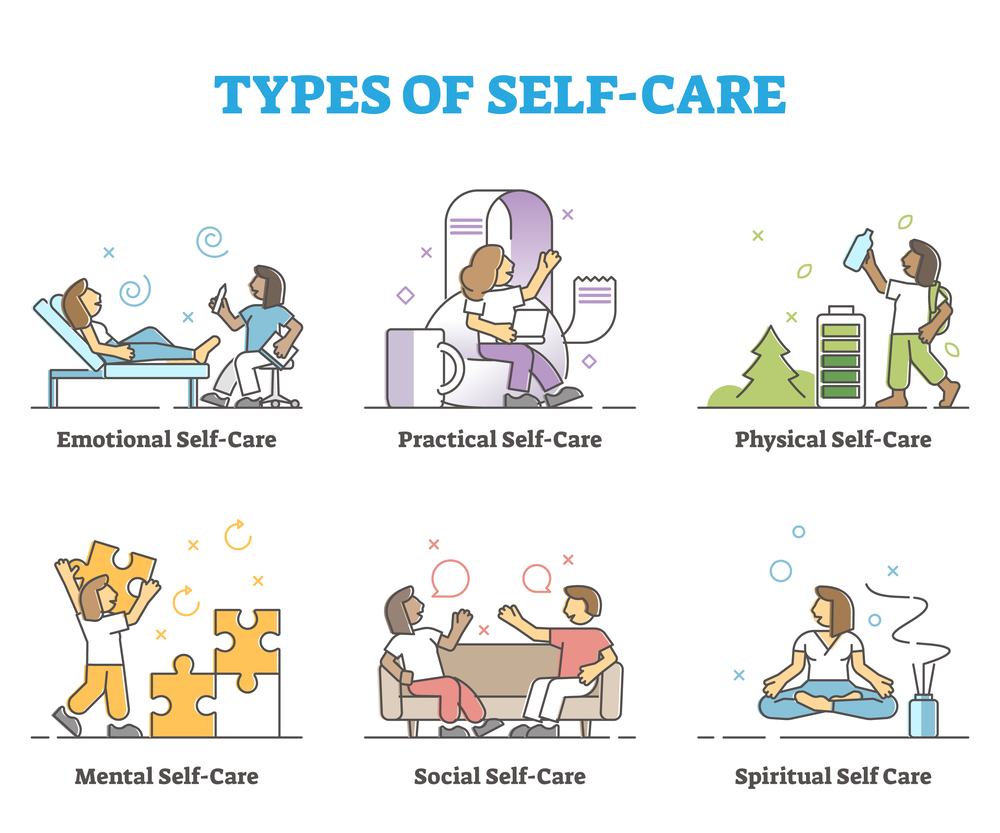How to Spot a Nymphomaniac: Identifying Compulsive Sexual Behavior
 Nymphomania, now more commonly referred to as compulsive sexual behavior, is a condition that's often misunderstood and rarely discussed openly. It's essential to approach this topic with sensitivity and awareness, as the term has historically been derogatory. Nowadays, understanding this behavior is key, as it can significantly impact one's life and relationships. Recognizing the signs […]
Nymphomania, now more commonly referred to as compulsive sexual behavior, is a condition that's often misunderstood and rarely discussed openly. It's essential to approach this topic with sensitivity and awareness, as the term has historically been derogatory. Nowadays, understanding this behavior is key, as it can significantly impact one's life and relationships. Recognizing the signs […]Nymphomania, now more commonly referred to as compulsive sexual behavior, is a condition that's often misunderstood and rarely discussed openly. It's essential to approach this topic with sensitivity and awareness, as the term has historically been derogatory. Nowadays, understanding this behavior is key, as it can significantly impact one's life and relationships. Recognizing the signs is the first step toward addressing the issue, whether you're concerned for yourself or someone you care about.
Compulsive sexual behavior can manifest in many ways but typically involves a persistent and intense pattern of sexual thoughts, urges, or behaviors that may be difficult to control. This can lead to distress or impairment in personal, family, work, or other important areas of functioning. It's important to remember that seeking pleasure is a normal part of the human experience, but when it becomes excessive and uncontrollable, it might be time to look closer.
Key Takeaways
- Compulsive sexual behavior is a complex condition requiring empathy and understanding.
- Recognition of persistent and intense sexual thoughts or behaviors is crucial for addressing this issue.
- Differentiating between normal sexual activities and compulsive behaviors is key to seeking appropriate help.

Understanding Nymphomania
Nymphomania is often misinterpreted, so you must grasp its definition, context, and differentiation from similar conditions. Let’s explore each aspect to give you a clearer understanding.
Defining Nymphomania
Nymphomania traditionally referred to the excessive and uncontrollable sexual desire in women. Today, this term is outdated and often considered pejorative. Instead, professionals use terms like "hypersexual behavior" or "hypersexual disorder" to describe a pattern of behavior involving intense preoccupation with sexual fantasies, urges, or behaviors that may lead to distress or impairment.
Key Takeaway: Nymphomania is an antiquated term that parallels what's now known as hypersexual disorder.
Historical Context
Historically, "nymphomania" surfaced in medical texts as early as the 1700s. It labeled women with strong sexual desires as ill, reflecting the gender biases of the time. The understanding of what is now termed as sexual addiction or hypersexuality has evolved, recognizing that it affects all genders and isn't just a moral or social failing but a recognized behavioral issue.
Key Takeaway: Awareness and definitions of compulsive sexual behavior have grown more sensitive and inclusive over time.
Nymphomania vs. Hypersexuality
Distinguishing between outdated terms and current medical understanding is crucial. Unlike nymphomania, hypersexuality is gender-neutral and is not solely defined by the quantity of sexual activity but also by the distress and functional impairments it causes. You might hear the phrase "sex addiction" used similarly, though it's not an officially recognized diagnosis in all medical manuals.
- Key Takeaway: Hypersexuality focuses on the psychological impact and impairments caused by excessive sexual thoughts and activities beyond mere high libido.

Identifying Symptoms
Before diving into the specifics, you must understand that the symptoms of nymphomania, now more commonly referred to as compulsive sexual behavior, can be multifaceted, and not all individuals experience them in the same way.
Behavioral Signs
Compulsive Sexual Behaviors:
- Engaging in sexual activities to the extent that it interferes with daily responsibilities.
- Involvement with multiple sexual partners and frequent sexual encounters.
Impulsivity with Sexual Urges:
- Acting on sexual urges impulsively without consideration of consequences.
- A pattern of unstable interpersonal relationships.
Key Takeaway: Awareness of these behaviors can be a stepping stone to seeking help or understanding the condition better.
Emotional Indicators
Stress and Anxiety:
- You might notice feelings of stress or anxiety escalate surrounding your sexual behavior.
Emotional Turmoil:
- Feelings of guilt or shame after sexual activity.
- Experiencing emotional distress linked to sexual desires or activities.
Key Takeaway: Recognizing these emotional responses is crucial as they often exacerbate compulsive sexual behaviors.
Recognizing Excessive Sexual Desire
Excessive Preoccupation with Sex:
- A heightened preoccupation with sexual fantasies and urges that seem overwhelming.
- Excessive masturbation or consumption of pornography.
Difficulty Concentrating:
- You may find it challenging to concentrate on non-sexual tasks due to persistent sexual thoughts.
Potential for Self-Harm:
- In rare cases, some individuals may have suicidal thoughts if they perceive their sexual behaviors as shameful or if they impact significant areas of life.
Key Takeaway: Recognizing and acknowledging these signs can be an essential part of the puzzle in managing compulsive sexual behavior. If you are experiencing these symptoms, it’s vital to remember that help is available, and reaching out to a professional can be a constructive step forward.
 Causes and Risk Factors
Causes and Risk Factors
Before diving into specifics, you must understand that nymphomania, now more clinically referred to as hypersexual disorder, is a complex issue with various underlying causes and risk factors.
Biological Influences
Family History and Heredity: Just like many psychological conditions, if you have a family history of mental illness, you're at a higher risk. Research points to genetics playing a role in predisposing individuals to behavioral addictions, including hypersexual behavior.
- Chemical Imbalance: Dopamine, a neurotransmitter linked to pleasure and reward circuits in the brain, might be imbalanced in your system if you experience hypersexual behavior.
Key Takeaway: Investigating your family history and understanding your biological makeup can provide insights into your risk factors.
Bipolar Disorder: Hypersexuality is sometimes observed in individuals during manic phases of bipolar disorder.
Recent Traumatic Life Event: Experiencing recent distressing life events, such as the loss of a loved one, can increase the risk of coping through hypersexual behavior.
Guilt and Personal History of Mental Illness: If you're dealing with guilt or have a personal history of mental illnesses, these factors might contribute to the development of hypersexual behavior as a coping mechanism.
Key Takeaway: Be aware that psychological factors and past experiences can significantly impact sexual behaviors.
Relationships and Environment
Life Events: Major changes in your life, particularly those that are traumatic or highly stressful, can trigger hypersexual behavior.
Environment: The settings and communities you're part of may influence your sexual norms and behaviors, potentially increasing risk factors.
- Age Under 30 and Female Gender: Statistically, hypersexuality has been observed more frequently in women under 30, but it's crucial to note that it can affect anyone.
Key Takeaway: Your surroundings and life circumstances play a vital role in shaping your behavior; understanding them can help you comprehend potential risks.
Effects on Relationships
Navigating relationships can be complex when dealing with heightened sexual behaviors. Understanding how these behaviors could strain partnerships and affect emotional closeness is crucial.
Impact on Intimacy
Hypersexual behaviors may seem like they would increase intimacy, but often, the reverse is true. It can lead to:
- A decrease in emotional intimacy: Your partner might feel like a means to an end rather than a co-pilot in your shared journey.
- Distorted expectations: Sexual interactions may overshadow other forms of closeness, making it difficult to appreciate the non-physical aspects of your relationship.
Key Takeaway: Balance is essential for nurturing physical and emotional intimacy in your relationships.
Infidelity Challenges
Addressing compulsions can be particularly tricky when they increase the likelihood of cheating. Here's what you might face:
- Increased risk of infidelity: The compulsion for frequent sexual encounters can sadly lead to decisions that might hurt your partner.
- Trust issues: A repeating cycle of compulsive behavior and cheating could erode the trust, which is the bedrock of any relationship.
Key Takeaway: Maintaining honesty and seeking support can help mitigate these challenges.
Social Implications
The social aspect of your life intertwines with your relationships. Here's how:
- Strain on social life: Your social circle might feel impacted if your compulsions become a central topic of concern.
- Misunderstandings: Friends and family may struggle to understand what you're going through, leading to unnecessary conflicts or distance.
Key Takeaway: Open communication with your social network fosters understanding and support.
Associated Disorders
When exploring the concept of nymphomania, now clinically referred to as compulsive sexual behavior disorder, it's pivotal to acknowledge the proximity of this condition to various mental health disorders. The intersection between excessive sexual drives and psychological well-being is significant, warranting a closer look at associated mental and emotional health challenges.
Mental Health Considerations
Compulsive sexual behavior disorder often co-occurs with other mental health conditions that can both influence and exacerbate the symptoms. Here's a brief rundown:
- Depression and Anxiety: It's not uncommon for you to experience swings of depression or heightened anxiety alongside hypersexual behavior.
- Mania: If you're grappling with bipolar disorder, you might notice periods of mania intertwined with increased sexual urges.
- Mental Illness: A wide spectrum of mental disorders can display hypersexuality as a symptom, making it crucial to approach diagnosis and treatment holistically.
The key takeaway here is that mental health considerations are intrinsic to understanding and managing hypersexual behavior.
Sexual and Emotional Health
The ripple effects of hypersexuality touch more than just your mental state — they permeate to your emotional and sexual health as well.
- Emotional Health: Your emotional equilibrium may be disrupted by persistent and intrusive sexual fantasies, impacting daily functioning.
- Sexual Health: Compulsive behaviors can lead to physical consequences, stressing the importance of safe sexual practices and regular health screenings.
Recognize that your overall well-being hinges on the interplay between sexual and emotional health.
Diagnosis and Screening
When understanding behaviors that may indicate nymphomania, a thorough approach involving healthcare professionals is crucial. Screening and diagnosis shape the foundation for identifying and assisting individuals who may experience this condition.
Healthcare Provider's Role
Your healthcare provider is central to the diagnosis process. They're well-equipped to:
- Observe unusual patterns in sexual behavior.
- Take a psychological history to provide context to these behaviors.
- Refer you to a mental health professional if needed.
Evaluation Tools
A mental health professional may use specific tools to assess your situation, such as:
- Hypersexual Disorder Screening Inventory (HDSI): A questionnaire helping to identify symptoms matching nymphomania.
- Interviews: Detailed conversations to understand the nuances of one's sexual behavior.
Differential Diagnosis
Differentiating nymphomania from other conditions is essential. Here's what professionals look out for:
- Other mental health disorders: These can sometimes manifest with increased sexual behaviors.
- Medical conditions: To rule out physical issues that could influence sexual behavior.
Key Takeaway: Accurate screening and a comprehensive evaluation are the first steps to understanding and addressing your concerns about nymphomania. Remember, seeking help from a healthcare provider is a step toward well-being.
 Treatment Options
Treatment Options
Before exploring treatment options, you must know that the journey to managing such challenges is achievable with the right support and tailored approaches.
Professional Counseling
Professional counseling is a crucial step toward wellness. Therapists, who often specialize in sexual health, can provide you with one-on-one sessions to work through your concerns.
- Psychotherapy: This can include methods like Cognitive Behavioral Therapy (CBT), which helps modify negative thoughts and behaviors.
- Support Groups: Sometimes, sharing experiences and strategies within a group can offer you comfort and social reinforcement.
Key Takeaway: Therapy offers a supportive space for you to understand and manage your feelings and behaviors.

Medication Considerations
Medications may not target the core of your impulses but can help manage symptoms. It's essential to navigate this path under medical guidance.
- Antidepressants: To balance mood disturbances as a possible underlying factor.
- Antianxiety and Antipsychotic Medications: These may help if anxiety or other mental health conditions are present.
Key Takeaway: Medicine can be supportive, but it's always best paired with professional counseling.
Alternative Therapies
Complementary methods can also be part of a holistic approach to balance your overall well-being.
- Yoga and Meditation: These practices promote relaxation and increased self-awareness.
- Massage Therapy: This can relieve stress, which may contribute to compulsive behaviors.
Key Takeaway: Alternative therapies can enhance your mental health toolkit, offering calming and constructive outlets for managing stress and emotions.
Managing Symptoms
When you're grappling with strong sexual urges that often lead to feelings of guilt or shame, knowing how to manage these symptoms can empower you to lead a more balanced and healthy lifestyle.
Improving Self-Control
Understanding and managing your sexual urges requires self-control. Here are some strategies:
- Identify triggers: Pinpoint situations that escalate your urges and plan ways to avoid them.
- Set boundaries: Be clear about your limits and communicate them to partners.
Key takeaway: Recognizing your triggers helps avoid situations that compromise your self-control.
Building a Support Network
You're not alone in this, and surrounding yourself with a supportive community can be beneficial:
- Support groups: Seek out groups where you can share your experiences and learn from others.
- Trusted friends: Confide in friends who respect your journey and offer encouragement.
Key takeaway: A robust support network can provide strength and perspective during tough times.
 Self-Care Strategies
Self-Care Strategies
Good self-care is a powerful tool in managing compulsive sexual behavior, and a balanced diet plays a crucial role, too. Here are some actionable points:
- Balanced diet: Fuel your body with nutritious foods that keep your mind clear and your body healthy.
- Mindfulness and relaxation: Practice techniques like meditation or yoga to reduce stress.
Key takeaway: Self-care strategies contribute to overall well-being and help reign in compulsive behaviors.
Prevention and Education
Educating yourself and others about problematic behaviors and promoting healthy attitudes towards relationships and sex can be decisive preventative measures.
Awareness Campaigns
Objective: Increase knowledge surrounding what constitutes a healthy attitude towards sexual activity and relationships.
Strategies:
- Educational Materials: Distribute leaflets, online content, and other resources that outline the signs of hypersexuality and its potential impact on relationships and social activities. This might involve joining Facebook groups, blogging, or creating a TikTok.
- Workshops and Seminars: Host events in schools and communities to discuss topics related to sexual health and the importance of recognizing when to seek help. This can be similar to the above by creating a Facebook group, a dedicated Facebook page, a dedicated Instagram account, or the like.
Key Takeaway: Regular exposure to educational campaigns can elevate social understanding and remove the stigma of seeking support.
Community Involvement
Objective: Create an inclusive environment where individuals can find support and guidance.
Strategies:
- Support Networks: Establish local support groups where individuals can share experiences and strategies for managing intense sexual desires.
- Family and Relationship Education: Offer counseling services focusing on building strong, communicative relationships and understanding the influence of family history on personal behaviors.
Key Takeaway: Community engagement ensures that you have access to resources and personal connections that can help in prevention and education regarding excessive sexual desires.
When interacting with someone you suspect might be dealing with hypersexual behavior, it's crucial to approach the subject without preconceived notions. This section aims to guide you through the complexity of social stigma while fostering a supportive environment.
Addressing Misconceptions
First thing first, let's cut through the noise:
- Myth: Nymphomania is just a high sexual desire.
- Fact: It's more complex, involving psychological challenges that can lead to distress.
Avoid jumping to conclusions about someone's character based on perceived sexual behavior. Remember:
- Shame and guilt often accompany this condition due to society's hasty judgments.
- Recognizing the difference between consensual lifestyle choices and compulsive behaviors is essential.
Key takeaway: Understanding beats judging—it’s the first step in breaking the stigma.
Advocacy and Acceptance
Advocacy is your tool to mold a more compassionate society. Here's how to wield it:
- Speak up about the human aspects of hypersexuality. Everyone longs for empathy.
- Push against the stigma by sharing accurate information.
Tips:
- Listen to their experiences; sometimes, feeling heard is half the battle won.
- Boldly challenge the stereotypes that chain people to a lifetime of concealment.
Solidarity with those facing such harsh social stigma can ignite change. As you stand with them, the collective whisper of acceptance grows louder.
Key takeaway: Your voice is powerful—use it to uplift and advocate for understanding.
 Conclusion
Conclusion
When you're grappling with compulsive sexual behavior, it's like being stuck on a merry-go-round. Your actions feel out of control, but remember, there's always a way to stop the spin.
Consistent therapy is critical. It can usher in relief, guiding you through the maze of your feelings and behaviors. It's a sturdy hand to hold as you navigate your path to balance.
In relationships, honesty and openness lay the foundation for understanding. Trust your partner with your struggles. This journey is lighter when shared.
Self-care is your anchor. Simple habits—good sleep, a balanced diet, regular exercise—bolster your resilience. They're your daily dose of strength.
Strategies to dodge potential triggers are vital—a personal prevention plan. Be mindful of what sets you off, and work on steering clear.
Amid all this, the social stigma might weigh you down. Here's a nugget of truth—it does not reflect your character. You're fighting a tough battle, and that's admirable.
Support groups are like lighthouses in a storm. Find one. They offer camaraderie and proof that the horizon isn't as desolate as it seems.
Key Takeaway: Behind every challenge is the promise of progress. You'll find your way out of the woods with the right mix of treatment, self-care, and support. Don't forget to cherish the small victories on your road to recovery.
Frequently Asked Questions
When trying to understand behaviors that may indicate hypersexuality, it's essential to approach the issue with sensitivity and a willingness to support individuals who might be struggling. Here, we discuss some key questions that arise when trying to recognize and support someone with hypersexual behaviors.
What are the common behaviors that might indicate hypersexuality in someone?
You might notice someone engaging in sexual activities much more frequently than average or seeing that their sexual behavior is interfering with their daily life. These behaviors can include:
- A relentless focus on sexual thoughts, urges, or actions.
- Engaging in sexual activities as a way to escape negative feelings or stress.
- Finding it difficult to establish or maintain stable relationships due to a preoccupation with sex.
Key takeaway: Persistent preoccupation with sexual activities that disrupts daily life could be a sign of hypersexuality.
Can psychological assessment tools be used to identify excessive sexual desire?
Absolutely. Mental health professionals often use assessment tools like questionnaires or structured interviews to help determine if someone's sexual behavior may be problematic. These tools help gauge:
- The intensity of sexual urges and fantasies.
- The impact of these behaviors on one’s personal and professional life.
Key takeaway: Professional assessments can be valuable in identifying and understanding excessive sexual desire.
How does one sensitively approach a partner who may have an unusually high sex drive?
Approaching your partner with empathy is critical. Consider these tips:
- Choose a comfortable setting and a good time to talk.
- Express your feelings without blaming or shaming.
- Listen actively to your partner’s perspective.
Key takeaway: A sensitive and non-judgmental approach can encourage open communication about sexual behaviors.
Are there any medical conditions associated with extreme levels of sexual behavior?
Indeed, certain medical conditions can influence sexual behavior, such as:
- Bipolar disorder during manic episodes.
- Dementia or neurological disorders.
- Hormonal imbalances.
Key takeaway: It’s important to rule out medical conditions that could be contributing to changes in sexual behavior.
What steps can be taken to provide support to someone who is dealing with compulsive sexual behavior?
Supporting someone with compulsive sexual behavior involves:
- Encouraging them to seek professional help from a therapist or counselor.
- Offering emotional support without judgment.
- Learning about the condition to better understand what they're going through.
Key takeaway: Being there for someone in a supportive role can make a big difference in their journey to managing their behavior.
How can one differentiate between a high libido and clinically significant hypersexuality?
To distinguish between the two, consider:
- Whether sexual activity is harming any aspect of the individual's life.
- If there's a loss of control over sexual expression.
Key takeaway: Clinically significant hypersexuality usually has negative consequences and affects one's ability to control their sexual behaviors.

